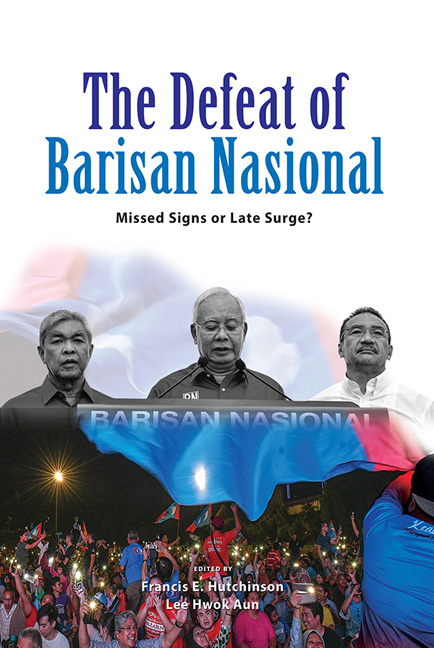Foreword
Published online by Cambridge University Press: 17 April 2020
Summary
For most Malaysian watchers, 9 May 2018 will go down as one of the most remarkable days in the country's history. For the first time ever, an opposition alliance succeeded in deposing the predominant Barisan Nasional (BN) coalition in a general election. The transition, characterized by a delayed swearing-in ceremony of the new prime minister, was peaceful if somewhat grudging. The losers were clearly shocked by their overwhelming defeat, but no less than the winners’ surprise at their victory. After an initial spell of apprehension, a sense of buoyant optimism and idealism infected the mood of the country, though it would ultimately prove unsustainable after the real task of governing began.
The events of GE-14 are all the more remarkable because of how unlikely they seemed just a few years earlier. The opposition was in disarray after an earlier coalition fell apart when the Islamic Party broke off ties with another member party. Mahathir was still a highly distrusted figure by many key opposition stalwarts, not least because of what he had done to them in his previous stint as Prime Minister. Anwar Ibrahim, the most effective campaigner in the opposition, was in prison again and unable to run or campaign. Anwar and Mahathir were estranged, and the depth of disdain that they had for each other since the former's dismissal from the post of Deputy Prime Minister, his assault in custody and subsequent trial on questionable charges was seen as unbridgeable. Even the economy, while not performing at full potential, was still chugging along.
The only thing that the Pakatan Harapan had going for it was the simmering unhappiness over the 1MDB scandal. This undercurrent was strong enough to cause turbulence even within the dominant Malay party, UMNO, itself, and accounted for its incumbent Deputy President being dropped from his post and later stripped of his membership.
However, even with this, it took a combination of many factors for the upset of GE-14 to occur. It was aided by the ubiquity of social media that allowed the government-controlled media to be by-passed. There was also the political statesmanship displayed in the coming together of Mahathir, Anwar and Lim Kit Siang, among others, to form a political alliance.
- Type
- Chapter
- Information
- The Defeat of Barisan NasionalMissed Signs or Late Surge?, pp. xv - xviPublisher: ISEAS–Yusof Ishak InstitutePrint publication year: 2019

